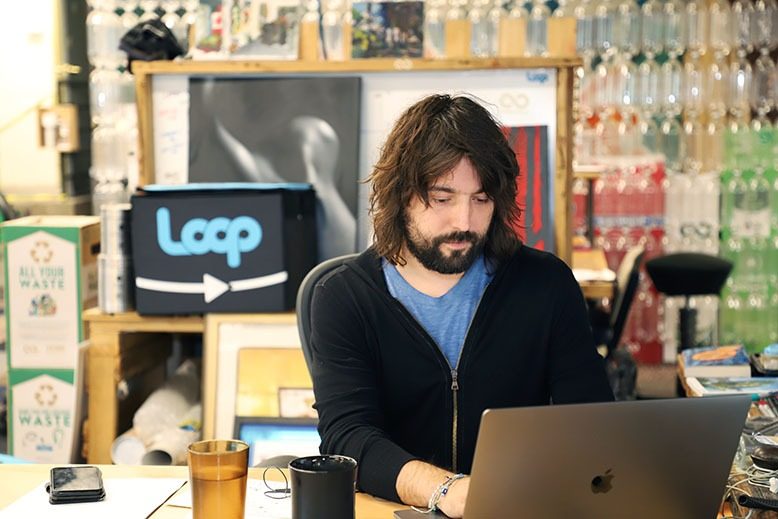
It probably comes as no surprise that we are in a global waste crisis. Much of our waste piles up in landfills, polluting our planet, including the air we breathe and the water we drink.
More than 20 years ago, Tom Szaky left Princeton University in the middle of his second year because he was fascinated by the topic of garbage, and it is from this fascination that TerraCycle, his global-waste management company, was born. “Our mission at TerraCycle is eliminating the idea of waste, and we work with businesses, government entities and the community to keep rubbish out of landfills or from incineration,” Szaky says.
TerraCycle, which is headquartered in Trenton, has over 600 employees, and operates nationally as well as in 21 countries around the world. Simply put, TerraCycle recycles things that no one else recycles, such as cigarette butts and dirty diapers. TerraCycle helps companies make their products from waste, and it even launched the world’s largest reuse platform that allows many of our favorite products to be in fully reusable packaging.
How exactly did Szaky start this love affair with waste? Says Szaky, “I got really fascinated by the concept of purposeful business and using business as a tool for good. Garbage as a topic is eternally fascinating because it is filled with all these anomalies. We live in a materialistic world. Our status in some part is linked to the stuff we own. But it is interesting that the garbage industry will legally own everything we possess with no exceptions. And 99 percent of what we buy becomes the property of the garbage company within a year of purchase.”
So how does TerraCycle recycle things like dirty diapers, which it has done in Japan, France and Holland? Since collecting and processing diapers is more expensive than the results are worth, the first step was finding a stakeholder interested in funding the process—in this case, it was Pampers. Then, TerraCycle set up methods for safely collecting the dirty diapers, using smart bins with smell control, and developed the technology to turn those diapers into sellable outputs, such as plastics.
But Szaky says it truly takes a village, and a global one at that, since 80 percent of the goods we use every day, such as pens, toothbrushes and coffee capsules, cannot be recycled locally through municipal programs.
Says Szaky, “A quarter billion people engage with our programs each year by collecting and recycling from around the world.”
TerraCycle not only collects and recycles millions of pounds of hard-to-recycle waste, but the company also raises capital, donating more than $50 million to charities and organizations that help collect and recycle waste. TerraCycle operates as a mission-driven, for-profit organization in every country it is present, except for Thailand, where it operates as a nonprofit.
“It is all about using the context of for-profit capitalism, the most powerful tool in the world today, probably more powerful than war and politics, and reframing profit as a health indicator [rather than] a reason of being,” says Szaky. “And then the reason of being can become environmental and social improvement.”
Steve Adubato, PhD, is the author of five books, including his latest, Lessons in Leadership. He is also an Emmy® Award–winning anchor on Thirteen/WNET (PBS) and NJ PBS. Check out steveadubato.org. Steve has appeared on CNN, FOX5 in NY and NBC’s Today Show, and his “Lessons in Leadership” video podcast with co-host Mary Gamba airs Sundays at 10 am on News 12+. Steve also provides executive leadership coaching and seminars for a variety of corporations and organizations both regionally and nationally. For more information, visit stand-deliver.com.



